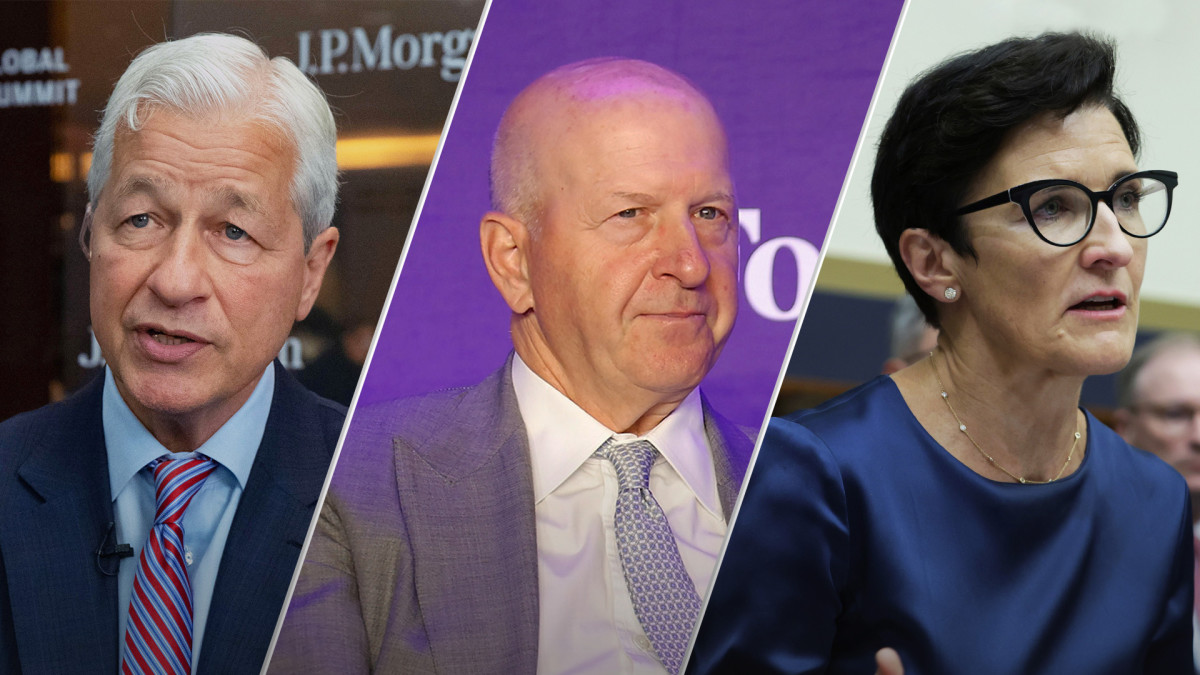
When the Covid-19 pandemic started, Wall Street banks quickly offered worker-friendly perks to attract and retain staff.
They’re taking a decidedly different approach this year.
Now that competition for workers has eased and Covid concerns have receded, Wall Street bankers are taking aim at one of workers’ favorite perks, potentially signaling its end.
Big banks deliver a hard-nosed warning
In 2020 Covid-19 health concerns led to a surge in early retirements and an embrace of gig work to improve work-life balance.
The exodus, which has since been labeled "the great resignation," created a big problem for companies that already were struggling to navigate Covid risks in the workplace.
Employers, including big banks like JP Morgan Chase (JPM) -), Goldman Sachs (GS) -), and Citigroup (C) -), responded by adopting alternative work solutions, such as remote work.
Related: Facebook delivers a hard-nosed warning to its workers
Work-from-home and hybrid work relationships quickly became crucial to Wall Street's hiring thousands of workers to meet growing demand stemming from easy-money policies, including stimulus payments and zero interest rates.
Workers jumped at the chance to work remotely. Instead of fighting rush-hour traffic, only to be trapped in cubicles all day, they could work from anywhere.
Many rushed out of urban centers to the suburbs, and some moved to less expensive states where they could buy bigger homes or save more money for retirement. Parents particularly appreciated the flexibility because remote work removed or reduced the need for pricey child care.
More Work From Home
- Amazon issues a hard-nosed warning to workers
- Goldman Sachs issues hard-line warning to workers
- JPMorgan's Jamie Dimon delivers a stern warning to remote workers
Alternative work arrangements have become employees’ favorite perk. A survey by the Washington Post/Ipsos found that 70% of remote workers plan to continue working from home, and 61% of workers still chained to offices expect to at least work in hybrid arrangements over the next decade,
Unfortunately for those cohorts, many businesses are reversing work-from-home policies, mandating office time, and threatening workers with negative performance reviews or job losses.
The biggest Wall Street banks are among the most vocal regarding cajoling people back to office buildings.
In April, JPMorgan Chase’s chief executive, Jamie Dimon, told managers they needed to return to the office five days a week. In July, he suggested that people who preferred to work from home might be unable to keep their jobs.
Goldman Sachs CEO David Solomon has also talked tough about returning to offices. The company last month urged employees to adhere to its mandate to work from the office five days weekly. The Financial Times reports that performance-based layoffs at the bank could mean pink slips for 1%-to-5% of workers as soon as next month.
JPMorgan and Goldman Sachs are not the only ones on Wall Street who want to see office seats filled.
In June, Citigroup CEO Jane Fraser’s team told managers to begin holding to account the workers who were flouting the company's return-to-office requirements. Failure to comply with its attendance policy will result in consequences, potentially affecting compensation.
The stern warnings on remote work come following a slate of high-profile layoffs to boost profits. For example, Goldman Sachs fired thousands of its staff in December, including 400 workers in its retail banking division. JPMorgan and Citi have similarly announced job cuts, particularly in their investment banking divisions.
In the second quarter, JPMorgan's earnings per share rose 58% from a year earlier to $4.37. Goldman Sachs and Citigroup saw earnings decline but still reported profits of $3.08 and $1.33 respectively in the last quarter.
Office vacancy rates are a big problem for banks
Overwhelmingly, return-to-office mandates tout the advantage of greater collaboration, instant feedback, and increased productivity. There’s certainly truth to those statements, but it isn’t lost on Main Street investors that big banks have another reason to want to see workers return to the office.
A rise in office-vacancy rates has taken a toll on the valuation of commercial real estate, potentially increasing the risks of delinquency and default on mortgages held by Wall Street.
We’ve already seen cases where borrowers, faced with the prospect of refinancing less valuable buildings at higher interest rates, have effectively tossed the keys back to the banks that lent them money in the first place.
More borrowers may decide to walk away rather than refinance if low vacancy and high interest rates continue to reduce valuations.
Big banks aren't just exposed to loans. JPMorgan is currently knee-deep in developing a massive super-tall headquarters in New York City, costing it up to $3 billion. Goldman Sachs's New York headquarters is a 44-story building in lower Manhattan that reportedly cost over $2 billion to construct.
Forget the big banks -- Sign up to see what stocks we’re buying now







